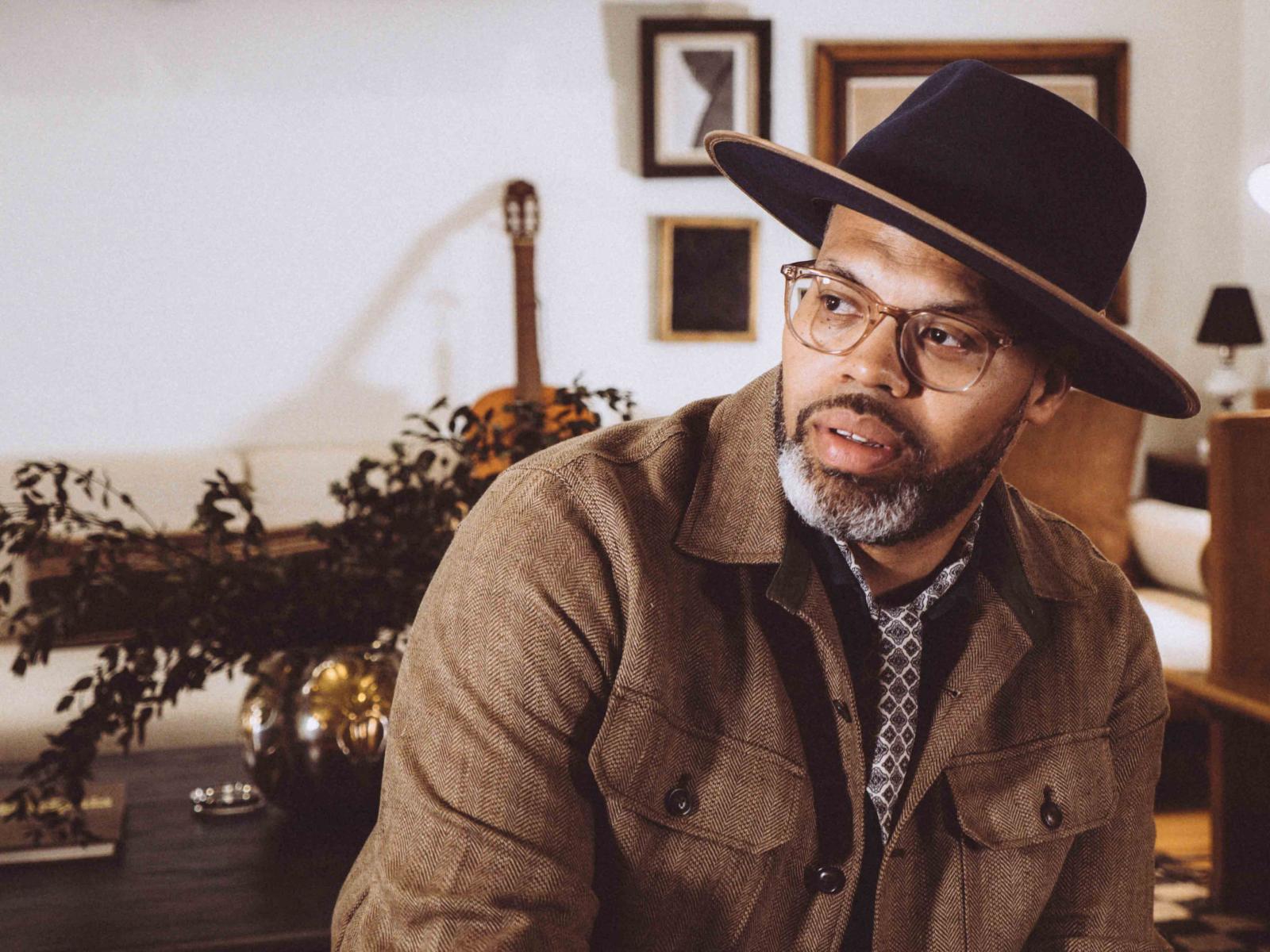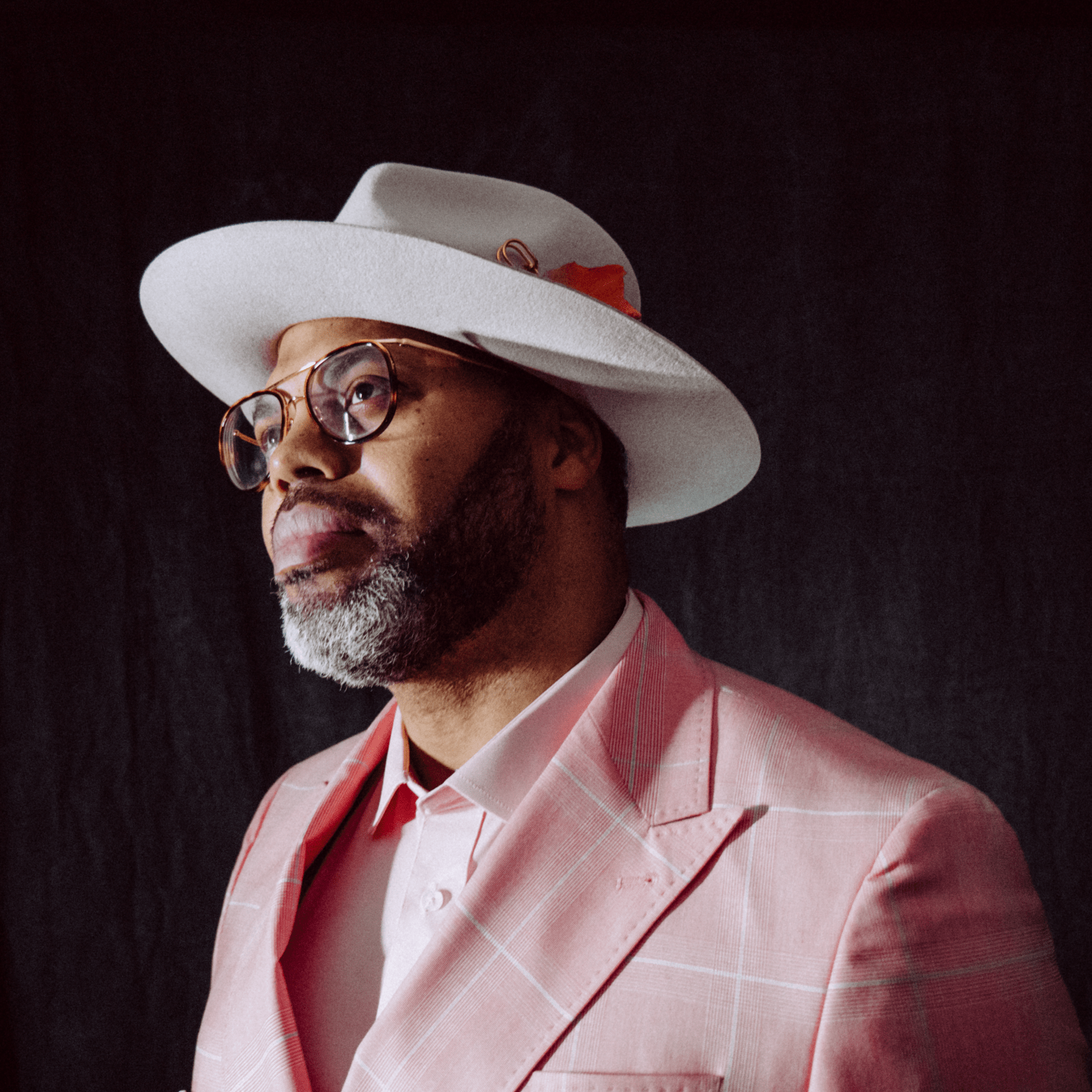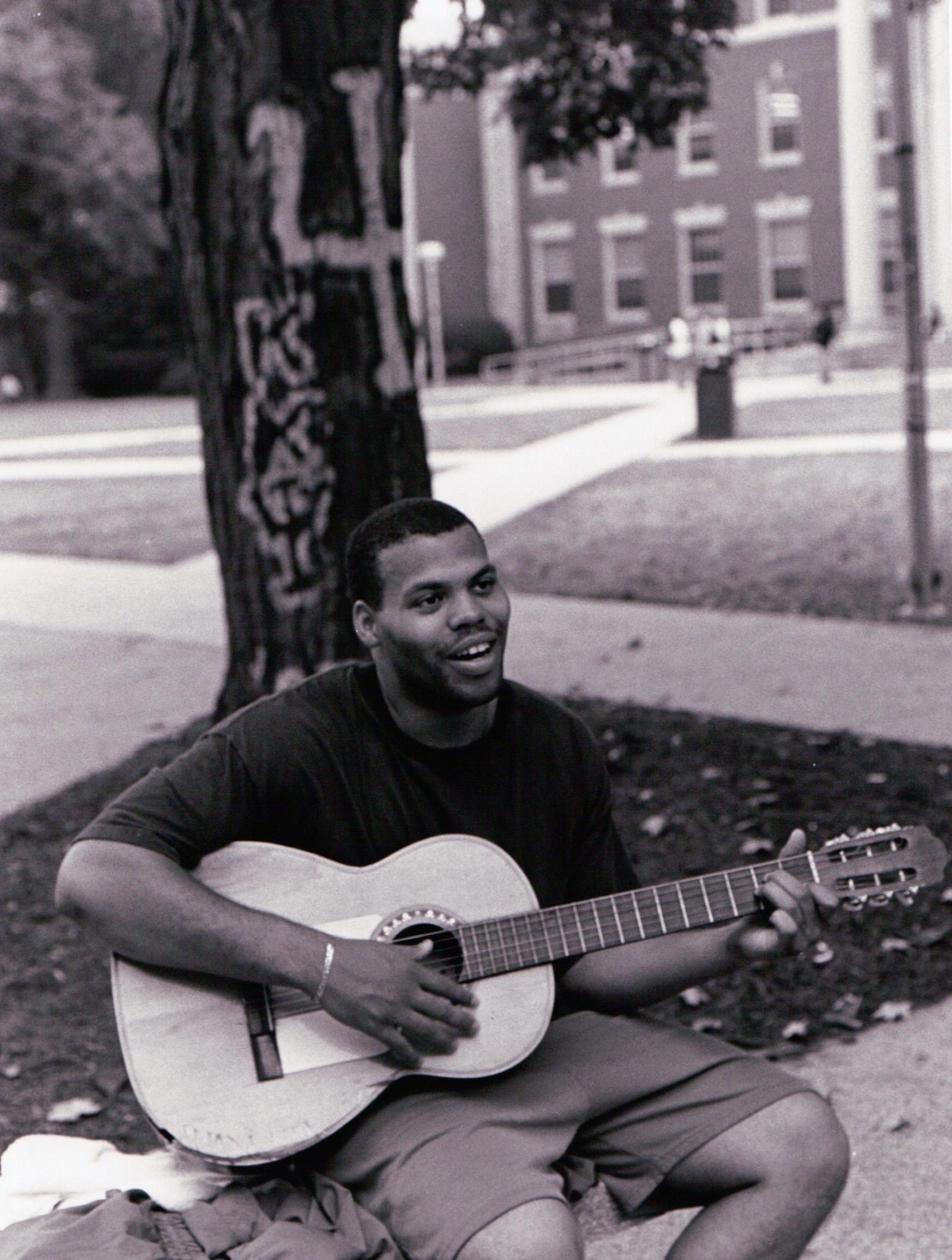“She said, ‘The main thing I remember about Donny Hathway is that he waited after class like you’re doing,’” Roberson recalled. “‘His questions were about his grades, your questions are about him.’”
Roberson’s musicianship is more than vocals; as a producer and songwriter, his pen was highly requested amongst his peers such as Musiq Soulchild, Dwele, and Jill Scott. TIDAL has commemorated Roberson’s contributions with a playlist featuring songs in which he’s credited with a role.
“’PreviousCats,’ which I wrote for Musiq Soulchild, I actually wrote that song while at Howard,” Roberson said. “It was an autobiographical song, very much what I was going through at the time that I wrote it. With Jill Scott, I had the fortune of just being around when she made her first album. I have a duet with her called ‘One Time.’”
For Roberson, perfecting his craft in songwriting requires incorporating multiple influences to filter out “breathtaking” moments with emotion is its nucleus. “I believe it’s already written and it’s more so my job to find it.” Roberson said.
“So, if I have to go back to a fourth-grade heartbreak, I’ll go there, if I have to back to losing my grandmother, or walking on Howard’s campus for the first time [for] that newness, I’ll go there,” Roberson explained. “I’ll pull from those areas so I can brighten, thicken the color of what I’m writing about. It’s about how connected to the process I can be.”
Roberson also says neo-soul is a child of hip-hop, with distinctive jazz melodies as Billie Holiday and Miles Davis serving as influencers too. “When I think of the D’Angelos and Erykah Badus, there were hip-hop kids who grew up on soul music...who slowed things down to make our raps a little more melodic and soulful.”






